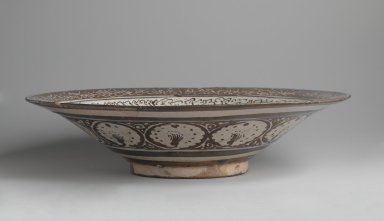
After a year that tore us in half, then in quarters, then eightfold pieces, there is enough confetti to fill a factory.
A year written somewhere between six feet of distance and six feet under. And this is not a play on words. The "Black Death" of 1665-6, under "Orders Conceived and Published by the Lord Major and Aldermen of the City of London Concerning the Infection of the Plague" required that the burial of the dead in graves measure "at least 6 foot deep." In the end, the 1.83 meters rule would be defunct within a year, when the bodies of over 100,000 victims compelled mass grave "pits" extending 20 feet below the surface of the earth.
If you stretch out the DNA of one cell it would be six feet long.
Full coffee withdrawal. Day One. I watch YouTube videos on quitting coffee and read short internet articles about quitting coffee. I do this about once a year, an anti-ritual of pious release. "I couldn’t get out of bed because I was so tired from the caffeine withdrawal," one person reports in a forum. "Basically, my body was detoxing in a major way, and my brain didn’t know how to handle it.” A dull throb in the lower orbits of my skull.
Sometime in the prior week, the idea of Rumi as a historical figure lodged itself into my thoughts. His name is often casually mentioned (a bit too casually) in conversations about mindfulness, or some other English phrase that has never captured that experience for me. It has always seemed odd that the basis of his documented life as a Muslim man—a deeply devout, even conservative one—is occluded in "Western" circles. I don't problematize his transcendence of categories as much as the omission of this particular fact, why this historical characteristic of his life is so widely ignored.
And anyway, who was this person really, the one I loved so abstractly and surely, as though he were my parent? I want to know who he was outside of questionable English translations quoted on the back of yoga books in the U.S. and the U.K. or images of his grave site circulated in Iran and Turkey. Outside even of the lines of poems scrappily memorized , or overheard as mellifluous photograms from my grandfather's brain.
This trail of queries ends up where all obsessions inescapably end: on Wikipedia. I read the full entry about him from bed, from where I have not moved a minor muscle lest any sudden jerking set off a cluster of cortical fire alarms. I land on an image called "Bowl of Reflections." Rumi's poetry was engraved on this object in the mid-1300s, during his lifetime, and if I squint the captions speak to me directly. I can see the bowl on display a mere 10 minutes walking distance from my apartment. Right now.
But when I get to Brooklyn Museum, my first time there in a full calendar year, a ticket assistant looks up the object's item number and bites his lip. He doesn't like giving me the bad news. The object is no longer on display, and "all of Asia is indefinitely on hold." I don't linger to ask what that means in terms of regions or dates. He apologizes and I accidentally apologize back.
The next morning, there will be an announcement about U.S. combatants exiting occupied Afghanistan by 11 September, 2021. There is no discussion after the headline read of what this presages for a country under foreign military occupation since the 1970s, just a bright acknowledgement of the "symbolism" of this date for the U.S.
How to reach across the centuries, how to mute the spiraling darkness.
Yoga, then an unexpected but copious sobbing release. The caffeine withdrawal is still painful, pulsing through my temples and kneading my forehead with invisible pricks. The tears come unbidden.
Consumed: hot green matcha tea; 1/4 of a French baguette; curried tofu with roasted red tomatoes and garlic; 1/2 of a small package of kettle chips (jalapeño); cold mint tea; some kind of citrus fruit; red grapes.
Just before iftār I play Shajarian’s "Rabbana" outside of the window as though for all of Brooklyn to hear.
Many incompletions, halting, deferrals. I remember a line out of context. "Flowers open when they’re ready," he said. And I have to get ready too.